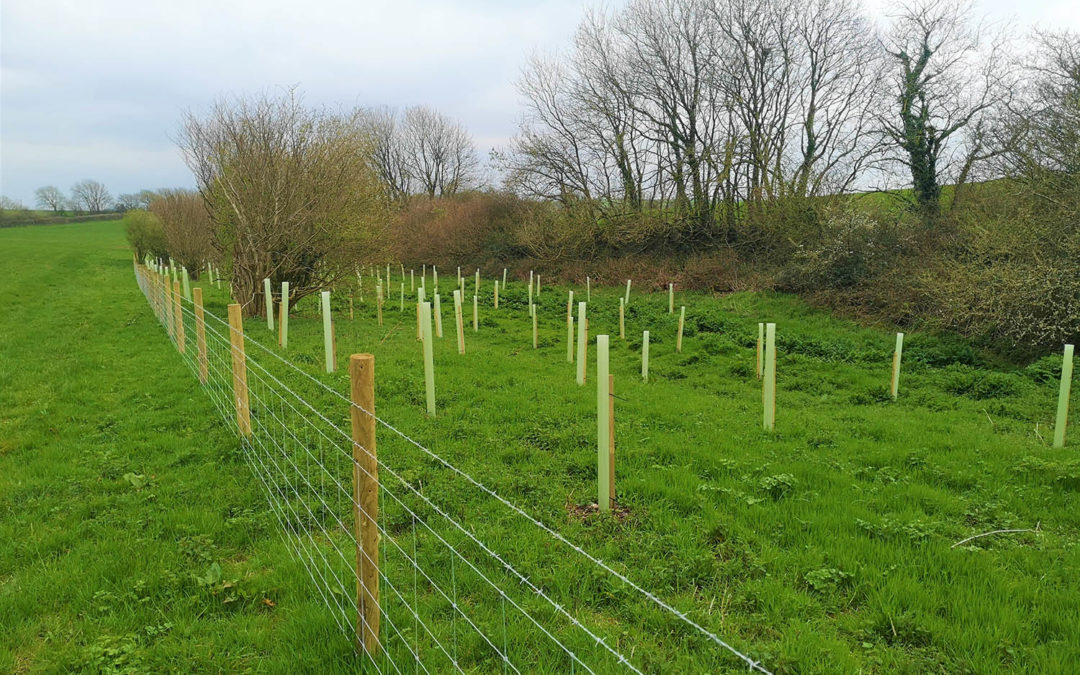Our Woods for Water joint project aims to reduce the impact of farming on water quality in north Cornwall by planting trees.
We have been working to protect and restore rivers across the South West for the past 25 years, and will be supporting land managers and farmers to plant new woodlands that will improve water bodies suffering from Phosphate and sediment problems, often caused by farm run-off, while also helping to minimise flood risk.
Our farm advisor Anthony Ellis said: “We all need to adapt to a changing climate, including heavier rainfall, and our focus through this Woods for Water project will be to assist landowners in the Camel and St Austell areas to manage their water courses and riparian habitats to become more resilient to future changes.”
The Devon County Council-led scheme, managed by the North Devon Biosphere, can offer advice and financial assistance to land managers and farmers towards tree planting, woodland-related natural flood management, sustainable drainage systems and additional items such as fencing and gateways for existing woodland habitat, newly planted areas to prevent livestock and pest encroachment, and maintenance.
Anthony added: “There is also assistance to secure funding from a range of related services including the Woodland Trust’s MOREWoods or Countryside Stewardship applications, which may provide maintenance payments.
“Farming provides us with so much and we are keen to support farmers in looking after our water courses.”
The Woodland for Water report funded by the Forestry Commission England and the Environment Agency found that riparian and floodplain woodland creation can help trap and retain nutrients and sediment in polluted run-off and has the potential to mitigate downstream flooding.
The project is funded by the European Union’s Water Environment Grant via the European Agricultural Fund for Rural Development – Europe investing in rural areas.
Phil Metcalfe, Woods for Water project manager for Cornwall, said: “Potential future support for farmers and landowners focusing on ‘public money for public goods’ will seek to incentivise farming to work towards better air and water quality, improved soil health, and support actions towards flood reduction along with other measures.
“We are therefore encouraging landowners and land managers to capitalise on the advice and funding the project can offer towards delivering environmentally beneficial outcomes which will be a cornerstone of any new system.”
Contact Antony Ellis via [email protected] or 07539 117 424 to find out more.
Alternatively, call Dave Valder on 07498 915616 to book a place at an information evening on Wednesday 27 November at 7pm at the Victoria Inn, Roche. Find out more at: wrt.org.uk/event/woods-for-water/


Hello, I am concerned about the amount of trees and hedges being chopped down. I I have not seen any being re planted anywhere. And as I drive around at austell I feel there are so many places that a large tree or cluster of trees could be planted. Why is this not happening is there anything I can do to ensure trees get planted in and around at austell
Hello Emma,
Thanks for getting in touch. In the first instance, you can take a look at: https://www.cornwall.gov.uk/environment-and-planning/climate-emergency/forest-for-cornwall/
We will advise if we hear of anything specifically taking place in St Austell.